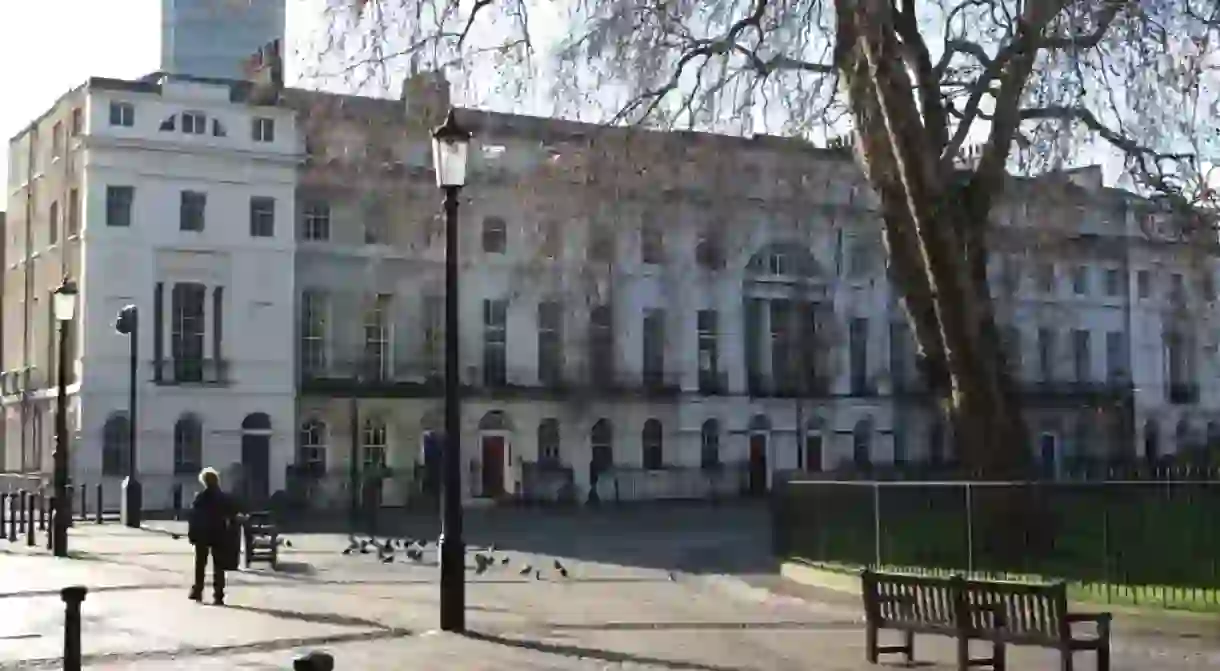A Literary Tour of London: Ian McEwan's Fitzrovia

The storied streets of Fitzrovia bustle with life seven days a week. However, in Ian McEwan’s Saturday (2005), the novel is concerned with the narrative of a single day, the titular Saturday. The text follows a day in the life of neurosurgeon Henry Perowne in his home of Fitzrovia, London, as he prepares for what should be a happy family dinner in the evening.
However, a chance encounter on University Street, near his home, gives the narrative a darker turn. The novel was well received when it was published in 2005, winning the James Tait Black Memorial Prize for fiction that same year. It has also been translated into eight languages.
The plot of Saturday is located in the small area of Fitzrovia, central London. The protagonist, Henry Perowne, lives in Fitzroy Square, in the very same house where McEwan used to live. Thus, the geographical details of the surrounding area are concisely and accurately described in the novel, from University Street where “it’s impossible not to feel that play-acting is – teenagers mostly – outside…seems less futile than usual.”

This sense of place is therefore central to Saturday, and the presence of the author, his knowledge and experience of the location, can be heavily felt within the text. The autobiographical nature is further reinforced by McEwan’s use of his own house, and a depiction of the character’s family as similar to his own.
The Saturday in question in the novel is 15th February 2003, the day of a mass demonstration against the US’s invasion of Iraq. Although the march is just alluded to in passing – “Gower Street a few blocks away to the east is one of the starting points for the march” – by using this particular day McEwan reinforces the setting within London’s – and the world’s – time and space. Henry muses on the demonstration and its problems and meanings throughout the day, which also gives the text a tension and sense of foreboding that carries through to the climax.
The distinct London setting and temporal device of having the whole narrative set within a single day of course brings comparisons to Virginia Woolf’s Mrs Dalloway. In a similar way to Woolf’s experimentations with representing the human experience and unconscious mind, in Saturday McEwan also explores how one engages with today’s society and the meaning of human existence. Set in a post 9/11 world, the novel also explores the violence, political conflicts and alienation of communities inherent to the modern experience, as depicted through Perowne’s encounters with the antagonists of the text.
Above all, Saturday by Ian McEwan is a book located in Fitzrovia, London. This space is central to both the setting, the characterisation of protagonist Henry Perowne and way in which the author explores the human experience of the modern world. Frequent allusions to real locations in Fitzrovia embed this area within the novel, and McEwan’s own familiarity with the space give the text a depth and intricacy of detail that supports the reader’s understanding of the main character and his psyche.













